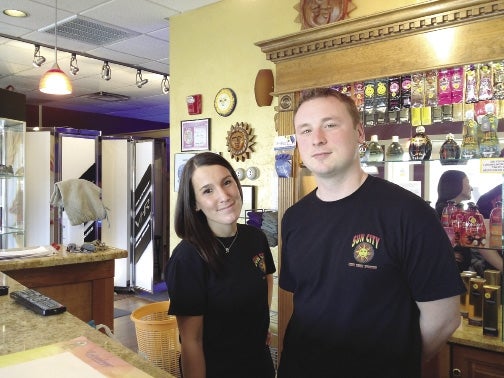Two years after President Obama signed the Patient Protection and Affordable Care Act, owners of tanning salons are still feeling burned.
Signed into law in March 2010, a last-minute exchange in the embattled bill swapped out a 5-percent tax on cosmetic surgery – referred to as the “Botax” – for a 10-percent levy on indoor ultraviolet tanning that took effect July 1, 2010.
The common word heard in the industry regarding the tax is “unfair.”
“The federal government has no business making tax policy like that,” said John Overstreet, director of the Indoor Tanning Association (ITA).
He blames the recession and tax for the shuttering of 15 percent of all tanning salons nationwide between 2009 and mid-2011. The ITA reports that Massachusetts lost almost 12 percent of its tanning salons during that period, dropping from 404 to 360.
Salon owners in Central Massachusetts agree with Overstreet about the tax, with varying degrees of frustration.
‘Targeting’ Small Business
“It just seems like it’s targeting small-business owners,” said Tom Nelson, owner of two Sun City Tanning locations in Worcester. “It’s one of the few industries that are still not large chains and corporations. So what it’s doing is it’s affecting small businesses, and in the same breath, you have the president coming out and saying, ‘Oh we’re trying to give every opportunity for small businesses to succeed.’ And you look at this health care reform bill, and they stayed away from the large businesses. So it just seemed like they focused on small businesses in an industry where small businesses still exist.”
Nelson said he would have liked to see the industry have time to fight the tax as the cosmetic industry did the “Botax.” He also said that while he understands the need for taxes as a revenue stream for the health care reform law, 10 percent is too high for the tanning industry, and he takes issue with gyms and other places that offer tanning — but not as their main source of income — being exempt from the levy.
Toni Vachon, owner of Fitchburg’s Sunsations, said, “It’s an injustice to this mom-and-pop industry. Most of these businesses are owned by single females or small families. For the little guy who’s bringing in $100,000 a year, to have to pay $10,000 in taxes is just ludicrous.
She suggested that all service industries be taxed.
“This is a labor-involved business just like waitressing,” she said, adding that auto mechanics and hair stylists are not taxed for providing their services. With regard to focusing on health issues in the Affordable Care Act, she suggested that cosmetic surgery be taxed as was initially intended.
Vachon remains unconvinced that cancer is linked to indoor tanning and believes the industry has been unfairly vilified.
Health Risk?
Dr. Louis Kuchnir, a Shrewsbury dermatologist and president of the Massachusetts Academy of Dermatology (MAD), said people don’t have to believe that tanning causes harm, but dermatologists don’t recommend it.
“The World Health Organization has added (ultraviolet) light to their list of things that cause cancer, and people who claim otherwise in order to sell it should review the settlements that were forced on the tobacco industry for making health claims,” after data showed smoking was unhealthy, he said.
He did, however, say he doesn’t think taxing tanning salons is the answer.
“I don’t think (MAD) in any way supports the tanning tax, and I don’t know that it has a lot of effect,” Kuchnir said.
Vachon said she has lost regular clients and that, to offset revenue lost due to the tax and the recession, she’s had to raise prices at her salon by 10 percent for the first time since she opened in 2005. She said she’s also paying higher fees to credit card processors because they charge based on the total sale.
Tax-Free Alternative
As for Sun City, Nelson said the company has been fortunate not to have been greatly affected by the tax. At about the same time it took effect, his salons began offering custom airbrush tanning, which is exempt from the levy. He said offering spray tanning has been a good decision, as demand has grown. And he said that to stay competitive, he’s cut prices about 20 percent and focused on marketing.
“I guess it’s just that we’ve weathered the storm,” he said. “You can see that business dropped from the peak in ’06-’07 when it really started to go downhill, but it also starts to even out, and we’re at that point now.” n

